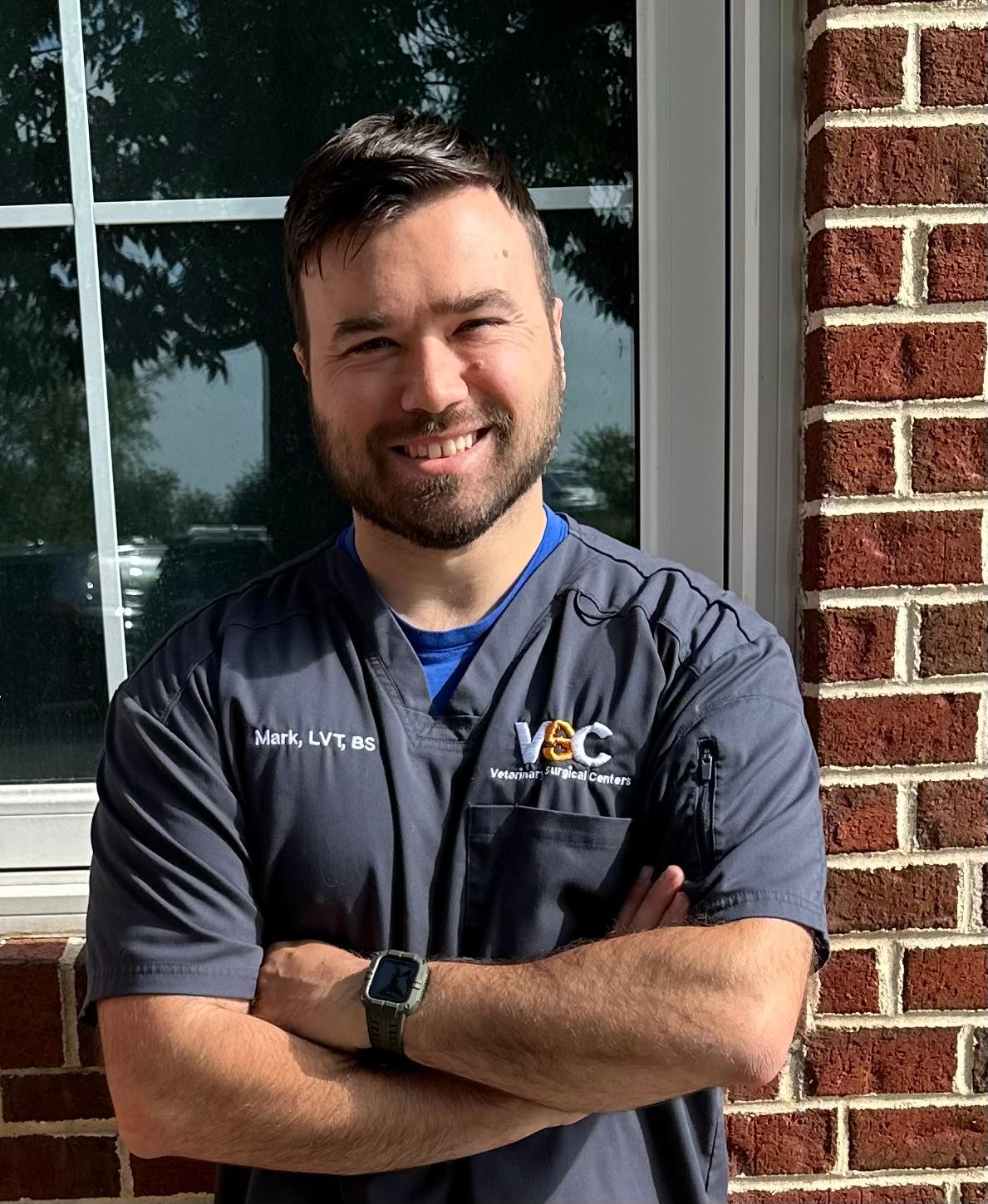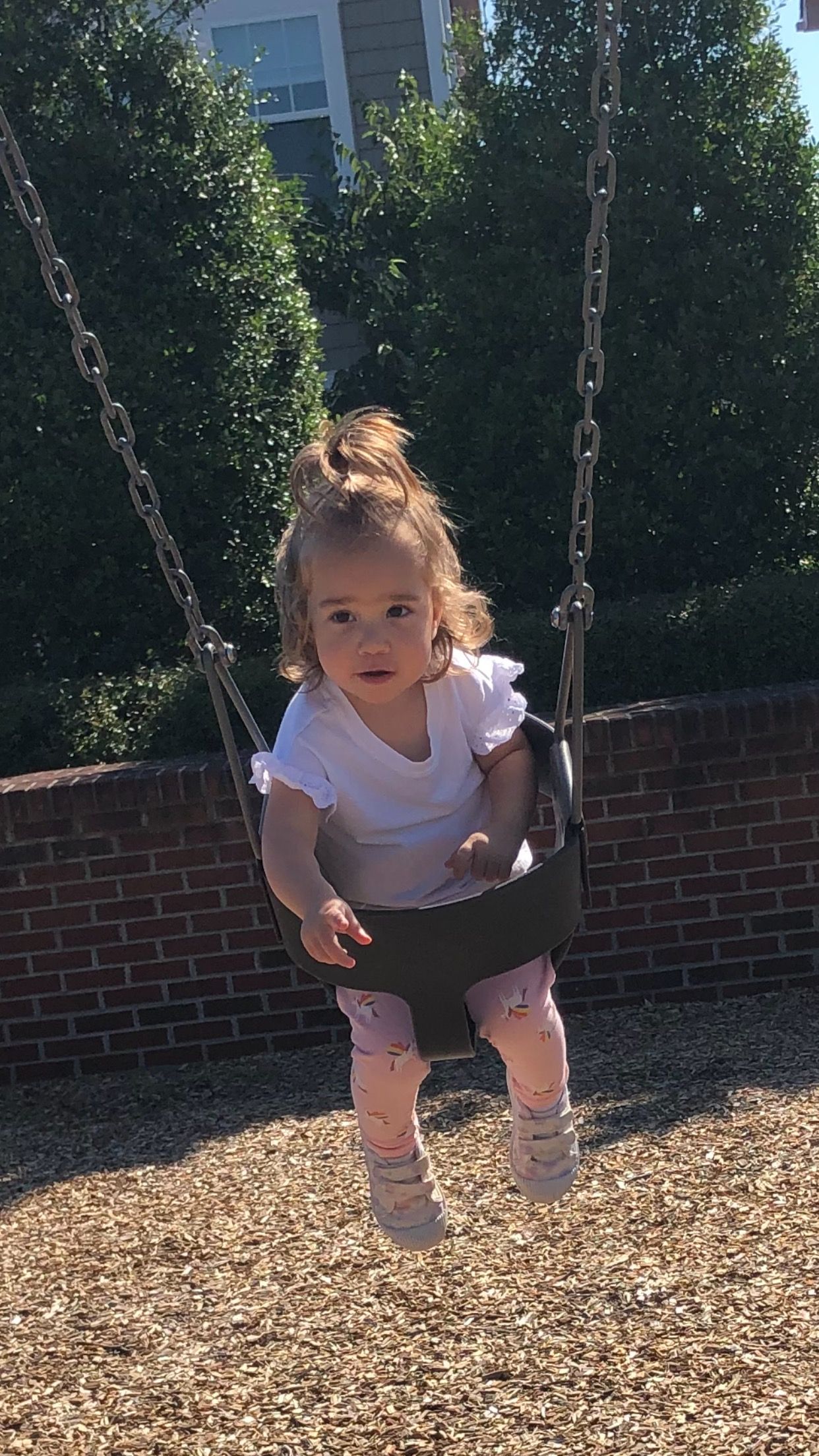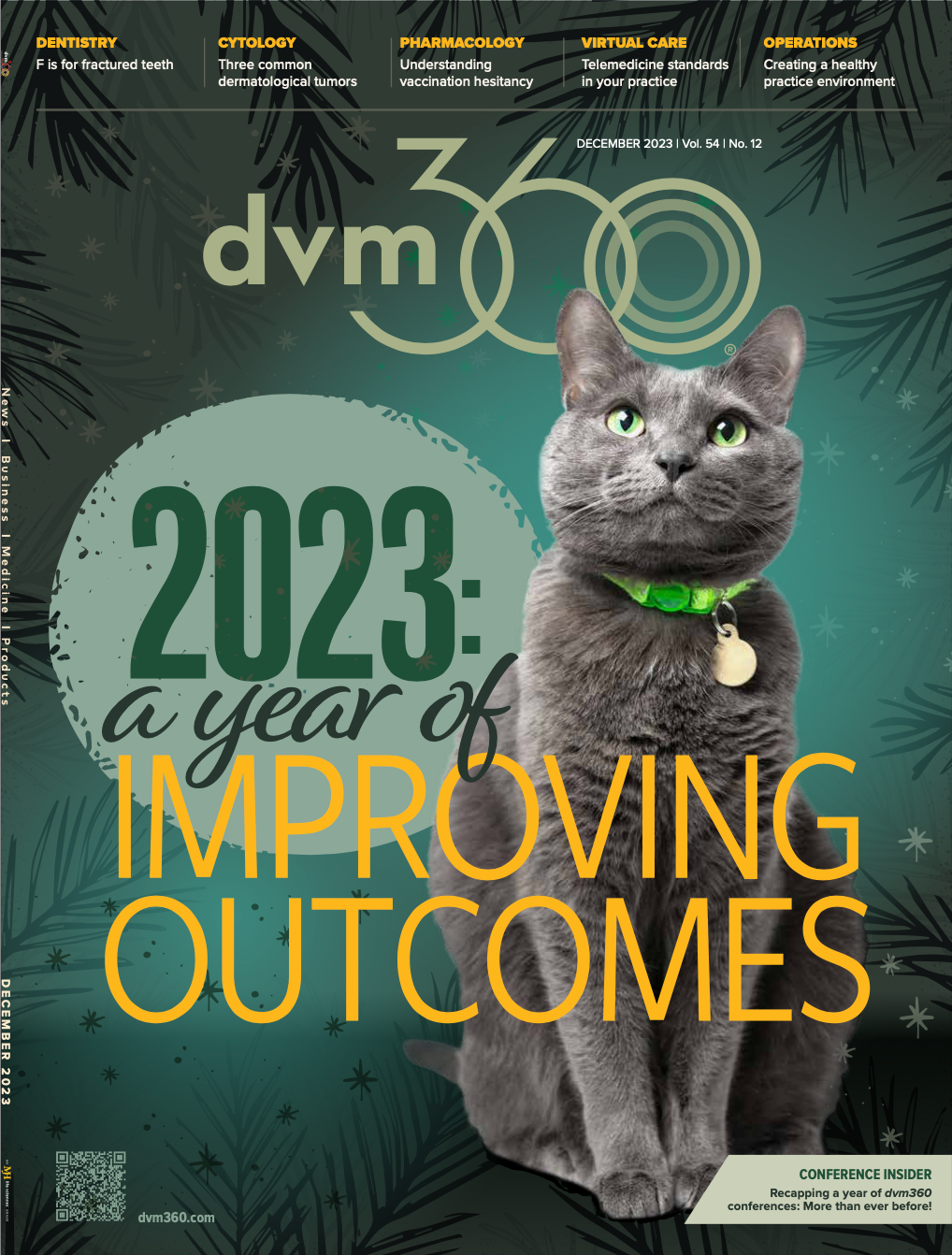From vet tech to dad
How my experience in veterinary medicine prepared me to be a father
“Never is a man more of a man than when he is the father of a newborn.” –Matthew McConaughey
This quote hits home and resonates deeply with me now. However, that was not the case when my wife and I welcomed our beautiful daughter into this world. After she was born, never have I felt so helpless, lost, overwhelmed, weak, and less of the man that I had become. Because of my experience in veterinary medicine, I was able to keep my head above water and navigate the early days, weeks, and months of becoming a new father.
When I graduated veterinary technician school in 2012, I followed a passion that I had for surgery and anesthesia. I went to work at Veterinary Surgical Centers (VSC) in Leesburg, Virginia. I slowly grew and honed my skills of anesthesia monitoring. While being mentored, I was taught more advanced skills such as arterial line placement, epidural placements, peripherally inserted central catheters (PICC) placements. Before I knew it, I was training new hires in anesthesia and developing training programs for them.
Mark Harris, LVT, BS

Come the summer of 2014 I was offered a job at Six Flags Great Adventure and Safari in Jackson, New Jersey. I had started my career in zoo medicine, one of my life’s goals. This is where I became familiar with neonatal care: setting up bottle feeding schedules, mixing and making the formula, preparing it, giving bottles, and stimulating the patients. This became second nature to me and would eventually ingrain the basic care skills I would need when I became a father.
What happens when the baby lion doesn’t want to eat? Has crackles on lung auscultation? You do chest rads, blood cultures, start a prophylactic antibiotic treatment and create a new schedule with a lot of sleepless nights. Treat that cub with everything you have and see them come out the other side. These are the experiences I was having that I did not realize I would lean on for support later in my life.
The Harris family

I met my wife in 2016 and married in 2019. We moved back to Virginia in anticipation of starting a family, and in April of 2021 we found out we were expecting. During our pregnancy we found out there were some underlying conditions that made us a high-risk pregnancy, including that our baby had a two-vessel umbilical cord, my wife had a bilobed placenta and a condition called vasa previa. Vasa previa is a condition where the blood vessels cross over or are near the opening of the cervix, when normally, blood vessels between the fetus and placenta are contained in the umbilical cord. This only happens in about 1% of pregnancies and is considered very high risk, as the mother and baby could bleed out. So, with all this new information we were obviously extremely concerned for the rest of our pregnancy.
Like most of us find out working in this field, you can have the best plans laid in place but they can go completely sideways. We knew we were going to be delivering early at 35 weeks, so because of this, my wife needed a steroid shot to help with our daughter's lung development. When my wife arrived for her first appointment, she found out she was in early labor, and she didn’t even know it or feel it. She gets admitted for the weekend and we make the decision to move the C-section up to Monday. At this time, I start looking around the hospital room, familiarizing myself with everything medical I could find to keep my head straight. I associated my surroundings with what I work with in veterinary medicine and looking over all of this took away some of the fear I had.
Come Monday morning we were getting ready to go into the operating room and I insisted on wearing my lucky scrub cap that I always wear for the surgeries I run anesthesia for (my wife begrudgingly allowed me to wear it). At 11:17 am on 11/15/21, we welcomed our beautiful daughter Savannah Diane Harris into the world.
Shortly after Savannah was born, I could see her SpO2 saturation wasn’t great and the medical staff was working on suctioning her airway. They moved her up to the neonatal intensive care unit (NICU), as that was procedure for any baby born prior to 36 weeks. On the walk to the NICU her SpO2 stats still weren’t great, so she was started on flow by oxygen. Once we got to the NICU the staff did a chest x-ray and continued to clean Savannah up and provide O2 support to her.
Later, my wife was cleared to go to her room, and we went to check on Savannah. Her O2 rate and respiratory effort had increased, and she now had abdominal effort. “Not good” is all I could think. My wife holds her for the first time and is overwhelmed with all emotions. She’s laying there holding our daughter and I’m standing there focused and frozen with fear seeing her O2 stats decline again. Before we leave the NICU the attending doctor comes by to talk to us and says that Savannah’s lungs don’t look great on X-ray and it could be a couple of things causing it anything from respiratory distress syndrome to pneumonia. They’re going to do a procedure where they have to sedate her, intubate her, and inject surfactant into the endotracheal tube to expand her lungs. OK no problem, I’ve sedated and intubated plenty of patients to know how routine it is, I think to myself. My wife is holding back the tears while trying to not break.
I kept running everything through my mind on how I would fix this if it were a dog, how similar our treatments would be. We waited for what seemed like hours before the doctor came back to tell us her procedure was done, and she did great. She was already breathing better and looked much more comfortable.
The next morning, I went to check on Savannah. The surfactant treatment hadn’t fully resolved her issues and with her oxygen dependency going up again, they needed to repeat the treatment a second time and place her on a ventilator for 12 hours to help the lungs expand. We see patients regress and need additional care and support that wasn’t originally planned for, so I was able to keep it together a little bit at this point.
This is what I was used to. Intubation, vents and sedation. This was my wheelhouse; I was able to talk with my wife extensively about everything and it made her a little less worried and in turn relaxed me by discussing everything. A radiologist called to inform her that Savannah had a pneumothorax. We were told it is actually not uncommon for newborns to have pneumos and they will monitor it as its very small.
It was probably around 1AM when there was a hurried knock on our door and a new doctor came rushing in. She was telling us that Savannah had developed a tension pneumothorax and needed a needle decompression and now needs a chest tube. We told her to do everything you need to do. After she left, we were stuck in a moment of shock.
As we sat next to her NICU bed, my wife was overwhelmed at seeing our daughter, who was only 36 hours old at this point, hooked up to so many tubes, lines, leads and probes. Right when I went in, I looked at everything as if I was at work. I felt like there was nothing I could do; I was trying to be strong for my wife, but I was crumbling inside.
As the days went on, the NICU doctors went over the road map for what to expect. Her chest tube would stay in until the weekend (it was now Wednesday), then she would be weaned off the ventilator and her Fentanyl constant-rate infusions (CRI). Then she would go on continuous positive airway pressure, followed by flow by oxygen until its room concentration, then taken off oxygen support to see how she could tolerate everything without assistance. Thursday Savannah’s chest tube was water sealed, so no active suction from the pleuravac. Friday her chest tube was removed completely. That Friday was our last day in the hospital, we were being discharged that evening. We were given a number to call that would put us through to the NICU and we could get updates on her.
Savannah Harris

The next morning, I called for an update and we were told that she had come off the vent and was now only on oxygen flow. I fell down and couldn’t stop crying tears of relief. We could not have been happier. It was at this visit, 5 days after she was born, that I was able to hold Savannah for the first time.
Savannah made huge strides every day. She went from high concentration flow to room concentration in only a couple of days. Before we knew it, Savannah was moved to the step-down unit. This was her last stop before she could come home. There she came off the oxygen support and just had to come off her nasogastric (NG) tube and take 2 consecutive days of bottles to come home. We went to visit her every day. We would time it so that Savannah would have a feeding while we were there to visit. This is where my time at the safari park came in handy. I fed so many newborns that now was my time to shine! We were counting down the feeds and before we knew it, I was offering her the last bottle she would need in order to go home. Once I saw that last drop leave the nipple, I held the bottle up and yelled, “That’s it! That’s 2 days’ worth! LETS GO!” We finished the last of our paperwork, passed a car seat test, and were on our way home as a family for the first time. Fifteen days after she was born, Savannah was now leaving the NICU.
Through this whole process, if I didn’t have the experience as a vet tech, I honestly don’t know how I would have been able to get through it. My first time at VSC with learning, understanding, and teaching anesthesia help me so much. Learning the ventilator, how to read and trouble shoot capnography, understanding oxygen saturation, working on pneumothorax cases, chest tube placement, pleuravac setup and use, flow by oxygen progression with patients, CRI setup and usage, anesthetic drugs, NG tube placement and use, patient monitor usage, patient positioning for chest cases, IV catheter placement and medical team communication. Even my time at the safari park where I learned how to start bottle feedings, stimulate patients to defecate, formula preparation, bottle care and how to burp patients after their bottle. If it weren’t for these experiences that this field taught me, I would not have been ready to be a new father. For that I am forever thankful to be in this field and not take a day of it for granted.
Make sure to register to see Mark Harris speak at our Fetch dvm360 conference in Atlantic City this October!
